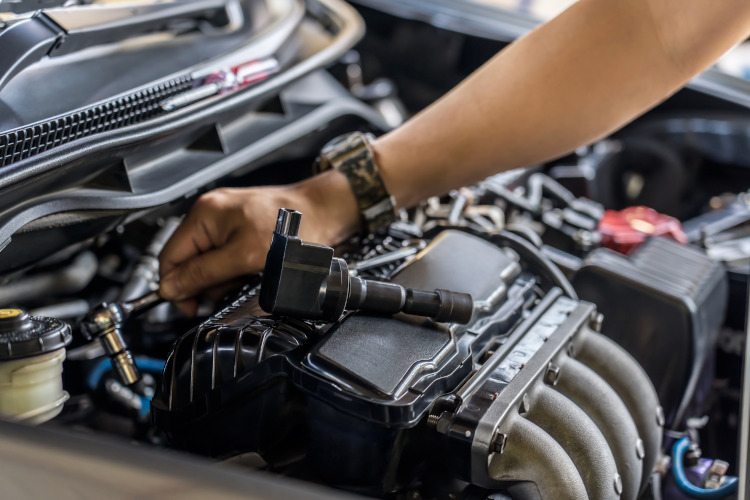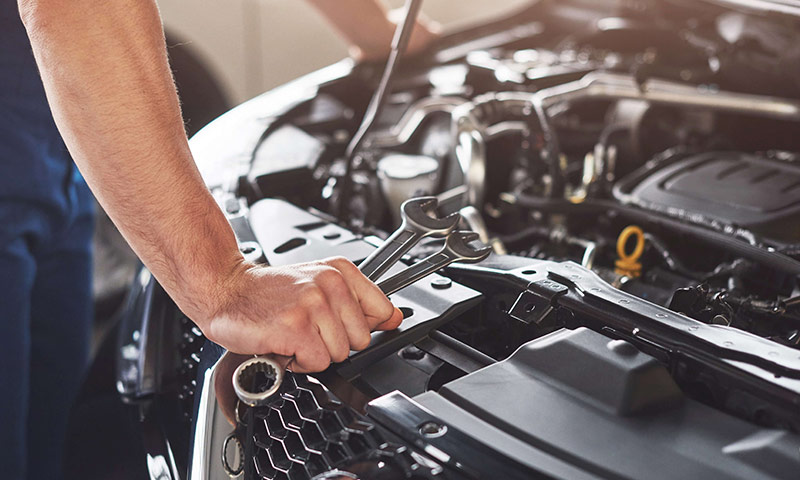20 Recommended Pieces Of Advice For Deciding On Car Parts
20 Recommended Pieces Of Advice For Deciding On Car Parts
Blog Article
The Top 10 Things To Know About The Source And The Quality Of Your Car's Parts
You can make better decisions by implementing these guidelines:
1. Choose OEM vs. Aftermarket
Take into consideration whether you'd like OEM (Original Equipment Manufactured) parts or aftermarket.
Pros:
OEM parts guarantee perfect fitting and performance.
The cost of quality aftermarket parts is affordable.
Cons:
OEM parts tend to be more expensive.
Certain aftermarket parts might not have the durability of OEM parts.
2. Look for Standards and Certifications
Tip Check for parts that have been certified by organizations such as SAE, ISO, or TUV.
Pros : Ensuring safety and compliance.
Cons: Some components are more costly or difficult to locate for older cars.
3. Find out about the Reputation and Quality of a manufacturer
Tip: Opt for well-known and trusted brands with a long-standing track history.
Pros: Reducing the risk of defective parts.
Cons: It is possible that copyright products are sold for brands that are well-known. It is imperative to be vigilant.
4. Buy from Trusted Retailers
Tip: Only buy parts from trusted platforms on the internet or from authorized dealers.
The pros: Reputable retailers typically provide guarantees and verified quality.
Pros: The prices could be more expensive when compared to third-party sellers that aren't verified.
5. Check the build and material Quality
Make sure that the materials are durable, corrosion resistant and are constructed correctly.
Pros Cons: Long-lasting durability as well as safety and durability.
Cons: You may not be able test the online parts purchased prior to purchasing.
6. Consider Refurbished and Remanufactured parts
Refurbished components are the best option for costly components such as engines or transmissions.
Pros: Cost-effective without compromising quality if sourced from reputable suppliers.
Cons: Unpredictable quality based on the refurbishing procedure.
7. Beware copyright products
Check the part number, logos, or the packaging to ensure that it is not copyright.
Benefits: Helps to prevent installing unsafe or inferior parts.
Con: Identifying fakes takes concentration on the details and experience.
8. Verify Warranty
Tips: Prioritize the parts that have warranties to cover any defects or failures.
Benefits Offers mental and financial protection.
Pros: Warranty claims may be lengthy if there are issues that occur.
9. Read customer reviews and ratings
Check out reviews online to get an idea of the product's quality in terms of durability, fit, and quality.
Pros: It assists in identifying high-quality products and eliminate inferior ones.
Cons: Some of the reviews on Amazon are unreliable or biased.
10. Understanding regional differences in quality
You should be aware that some regions could produce various parts (e.g. the original and replica factories).
Cons: You get the highest standard for the price.
Pros: Imports with high quality can cost more or take longer.
Final Thoughts on Weighing Both Pros and Con
Pros:
Higher quality components guarantee security, reliability, performance and durability.
Trustworthy vendors minimize the risk of warranties or copyright products.
Cons:
It is possible to pay more for premium components.
The authenticity and quality of a product are difficult to determine.
Make smarter choices by evaluating the quality of your sources and. This will allow you ensure the long-term performance of your vehicle as well as its worth. View the best izpludes gazu sistema car parts par smart cars for blog advice including spare parts by vin, bmw auto salvage, auto parts riga, aunt parts, bmw breaker, be auto parts, 14 auto, auto parts on pulaski, bmw auto spares, auto parts bmw near me and more.
The Top 10 Things To Consider About Advanced Systems
Replacement parts for advanced systems including electronics, sensors and advanced components for automobiles, must be carefully considered. These systems require different considerations than traditional mechanical parts. Here are 10 important suggestions to be considered, including pros and cons.
1. Learn to understand the Complexity of the System
Before purchasing any parts, make sure you understand the complexity and features of the latest systems (e.g. informationtainment systems, adaptive cruise control, or collision avoidance systems).
The intricacies help you avoid purchasing parts that aren't compatible.
Cons Pros: The complexity of modern systems could result in more expensive repair costs.
2. Make sure that the vehicle software is compatible with your Software
Tip: Check if the component is compatible or not compatible with the software in the vehicle (e.g. the ECU, the firmware, the sensors). Certain parts might require software updates or calibration.
Pros: Provides seamless integration with the system.
Cons: Software-related problems can be difficult and costly to fix, particularly if updates are required.
3. Advanced Systems: OEM or Aftermarket?
Some aftermarket parts do not have certain characteristics, particularly for high-tech components. OEM parts are necessary to ensure that the components are working effectively.
OEM components are compatible with the system that came from the beginning, and they guarantee the integrity of the system.
Pros: OEM replacement parts tend to be more costly.
4. Look for Integrated Systems and Modular Systems
A tip Note: Some systems are modular. This means that several components must work together. Make sure you have all the parts necessary for the system to function properly.
Pros: Modular systems can be more straightforward to maintain or upgrade.
Cons: Misunderstanding the modularity may cause incomplete repairs or additional costs if parts are needed.
5. Think about the implications of Vehicle Warranty
Tips: Before replacing electronic components or other parts of an advanced system, check whether the replacement will impact your vehicle's warranty.
Pros: It protects your warranty when the replacement is correctly performed.
Cons: Some components may void warranties if incorrectly replaced or if parts that are not approved by the manufacturer are employed.
6. Think about Calibration or Reprogramming Needs
TIP: Certain advanced parts like cameras, ECUs or sensors, might require reprogramming or calibration following installation. This task requires specialized tools or expertise.
Benefits: A proper calibration can ensure that the system is functioning correctly.
Cons: Calibration can be expensive, time-consuming and requires specialist knowledge or equipment.
7. Verify the compliance of parts in accordance with the rules.
Tips: For systems that are advanced particularly those that deal with safety, emissions, or driver assistance technologies, ensure the parts comply with the industry's regulations and standards (e.g., CARB compliance for emissions).
Cons: Doesn't ensure security or compliance with the law.
Cons: Parts that are regulated are expensive and hard to locate.
8. Prioritize brands specializing in advanced technology
Tips: Search for parts manufactured by companies that specialize in the latest automotive technologies, especially for complex systems like active safety features and infotainment.
Pros: Manufacturers with experience offer superior quality, more reliable parts for complex systems.
Cons Pros: Buying reputable brands may be more expensive than buying generics.
9. Make sure to check for system updates or recalls
It is important to determine for details about the recall or updates for the component of your system that is advanced you are planning to purchase. Car manufacturers sometimes issue updates to boost the system's performance.
Pros There is a guarantee that you're buying the most current version and avoid faulty components.
Cons: Updates and recalls could add time to the purchasing process.
10. Integration with other features of the vehicle
Tip: Some vehicle components interact with advanced systems (e.g. lighting, HVAC or powertrain). Make sure the part you choose works seamlessly with the entire system.
Cons: A well-integrated system provides seamless performance, which can prevent issues later.
Cons: Adding multiple systems to a system may make troubleshooting and installation more difficult.
Final Thoughts
The advantages of special considerations:
Seamless Performance - Assures that the system is correctly operating and is integrating properly to the vehicle.
Safety and Compliance Maintains compliance with regulations and decreases the risk of accidents, particularly using advanced driver assist systems.
Long-Term Value. Correctly calibrated and installed advanced systems will maintain their value and performance.
Cons of Overlooking Special Concerns:
The complexity of parts the parts, their reputation for brand or compliance with regulations can result in higher initial costs.
The installation and maintenance of complex systems: These systems could require specialized expertise, tools or a professional for the installation and maintenance.
The possibility of system failures The wrong choice of and installation of components can cause system failures which could result in expensive repairs as well as safety hazards.
These considerations for advanced systems can assist you in making an informed choice that balances costs, compatibility, and functionality and makes sure your vehicle's sophisticated systems run seamlessly. View the most popular suspension parts for audi cars for blog examples including x parts rover, look up auto parts by vin number, auto repuestos near me, on auto parts, auto parts open on sundays, parts checker, parts auto parts near me, bmw dismantlers, auto rezerves dalas riga, parts reviews and more.